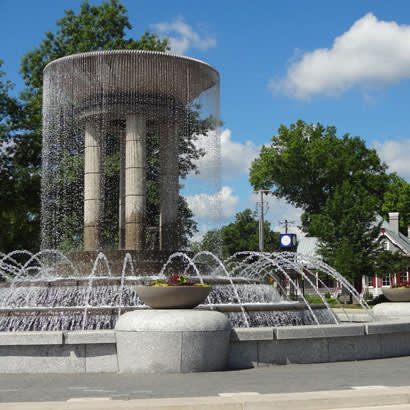
A smart city sounds like a term from a science fiction novel. This is anything but fiction, though: as smart technology and Internet of Things (IoT) devices become more affordable, cities around the country are beginning to pilot the use of these devices. One such city is Cary, North Carolina.
Cary is a town near Raleigh. Considered one of the fastest-growing cities in the south, it’s expected to have a population over 165,000 in 2019. What makes Cary special? The extensive smart tech program being piloted throughout the town, from water meters to waste management to public parking. So far, the program has been very successful, and it’s paving the way for cities around the U.S. to implement similar programs.
The Smart City
The number and scope of Cary’s smart city projects are astonishing. The city started with a smart water monitoring system, powered by analytics from SAS. This setup is expected to save as much as $10 million above the cost of the infrastructure.
This is accomplished by taking readings every hour and allowing customers to access those readings via a web portal to see exactly how much water they’re using. It also aids in the detection of water leaks and helps the city get accurate data for future infrastructure planning, saving even more money.
Cary has plenty of other initiatives and pilot programs in development:
- Real-time wastewater monitoring that tracks the flow of water and provides data for planning and maintenance
- An app for city residents that helps them locate available parking places
- Smart street lighting
- Free outdoor Wi-Fi to supplement offerings from local providers, some of which are also developing fiber networks to further support Cary’s growth
- Notifications when trash and recycling containers are full
And that’s just the beginning. The city has set up an area in Town Hall for testing new smart technologies and allowing IoT startups to showcase their products for possible use in the city.
Why a Smart City Is a Smart Idea
These technologies offer more than just cost savings for the city of Cary. They also provide convenient quality-of-life improvements for citizens, and in many cases help lower environmental waste. The effectiveness of the various programs is measured in part by input gathered from citizens, making them a key part of the equation.
Most importantly, they showcase what a smart city should look like, and what the benefits can be, to other cities across the country. If the relatively small town of Cary can have such a successful program, surely larger communities can as well. San Diego is already considering its own IoT plans.
The possible benefits are tremendous. That $10 million savings mentioned above is for only one part of the smart city initiative in Cary. Other programs may bring their own savings and benefits:
- Smart street lighting saves electricity and reduces light pollution
- Trash and recycling bin monitors direct personnel and vehicles to the places they’re most needed during pickup, saving time and fuel
- Smart parking monitors in the city help minimize the number of vehicles on the road, reduce congestion, and save fuel
- City-wide connected sensor deployment tracks everything from electricity and water use to traffic patterns, so city officials can allocate infrastructure planning and resources in a more cost-effective manner, potentially saving millions and tackling major problems before they get out of control
All this development could spell a brighter future for public spaces and parks as the city continues to grow. With resources freed up and more data available, city planners will be able to plan community spaces where they’re needed, leading to further community growth, revitalization, and unity. Smart tech investments have already paved the way for citizen engagement in Cary’s Downtown Park.
It will be interesting to watch as Cary continues to develop its IoT programs. The potential impact this smart city could have on both its population and cities around the country is exciting to say the least. This is certainly an area to keep your eye on in the future.
Hilary Bird writes about the things that fascinate her the most: relationships, technology, and how they impact each other. With a BA in Interpersonal Communication and over four years experience at a tech startup, she is on a mission to understand how technology will continually reshape the way we communicate and behave.


